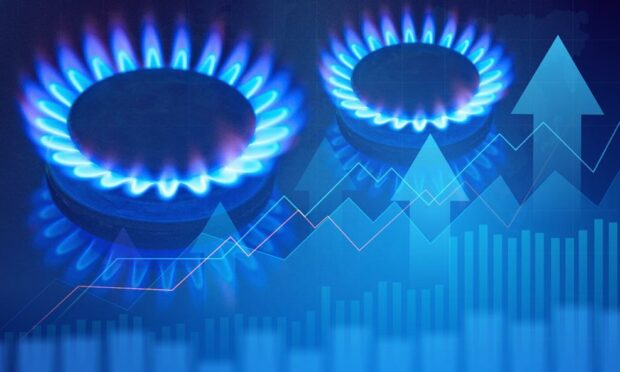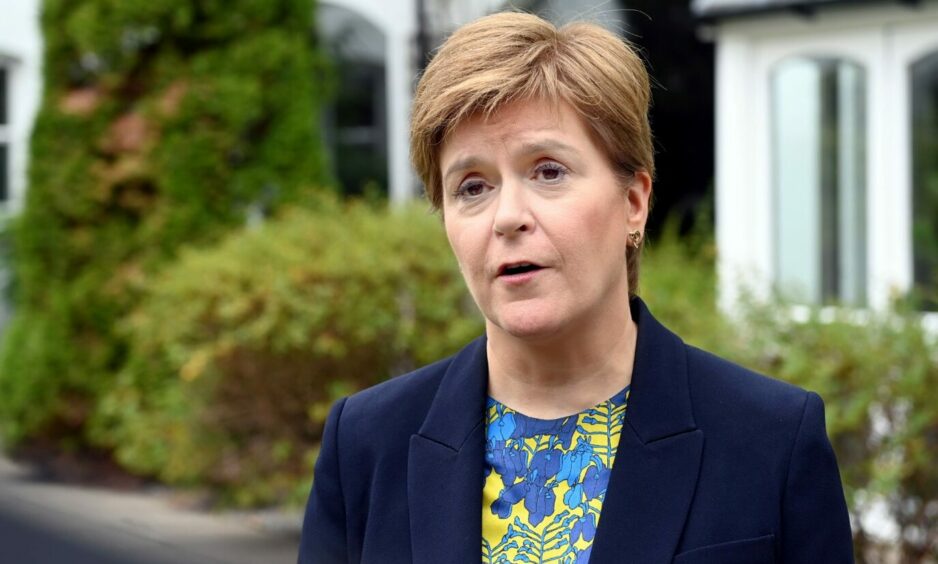Our interactive maps and charts show how the latest October price cap increase is going to add more than £2,000 to the average fuel bill in worst-hit regions such as the Highlands and Aberdeenshire.
The eye-watering increases led to new demands for the UK Government to act and stop households falling deep into poverty.
The cap comes into effect for around 24 million households in Scotland, England and Wales on default energy tariffs on October 1, and will remain in place until December 31, when it will be adjusted again.
Consumer champion Martin Lewis said people will die this winter because of the rise, announced on August 26.
“I’ve been accused of catastrophising over this situation,” he said.
“Well, the reason I have catastrophised is this is a catastrophe, plain and simple.
“If we do not get further government intervention on top of what was announced in May, lives will be lost this winter.”
Our charts, based on analysis from official figures and estimates of future bills, suggest average households face steep increases across the region.
After the October increase, the average extra costs are:
- £2,235 in Aberdeenshire
- £2,135 in Highlands
- £2,003 in Moray
- £1,997 in the Western Isles
- £1,737 in Aberdeen.
Shetland and Orkney also face big increases to bills of around £1300 but the figures are not directly comparable with combined electricity and gas on the mainland.
How can the increases be stalled?
First Minister Nicola Sturgeon said the rise should not be allowed to happen.
She warned: “This is simply unaffordable for millions. It cannot be allowed to go ahead.
“This rise must be cancelled, with the UK gov and energy companies then agreeing a package to fund the cost of a freeze over a longer period, coupled with fundamental reform of the energy market.”
Labour leader Sir Keir Starmer says prices could be frozen as part of his £30 billion plan to tackle the cost of living crisis.
Higher than expected VAT revenue could also be used, according to the Lib Dems.
Across Scotland this could amount to a massive £3 billion.
In a further targeted measure, the government was urged to double the warm homes discount to £300 and extend it to those on Universal Credit and Pension Credit.
Jonathan Brearley, chief of energy regulator Ofgem, said: “The Government support package is delivering help right now, but it’s clear the new prime minister will need to act further to tackle the impact of the price rises that are coming in October and next year.”
Will Rishi Sunak and Liz Truss act?
Both candidates for prime minister, Rishi Sunak and Lizz Truss, are under pressure to act when Boris Johnson’s term in government ends on September 5.
In a statement, a Truss campaign spokesperson said: “Today’s announcement will cause grave concern to many people across the UK who will be worried about paying their bills.
“As prime minister, Liz would ensure people get the support needed to get through these tough times.
Mr Sunak said people can judge him on his “track record” as chancellor, pointing to the package of supports he announced for people to tackle the cost-of-living crisis.
“It was acknowledged as being commensurate with the scale of the challenge, targeted at the people most in need,” Mr Sunak said.

